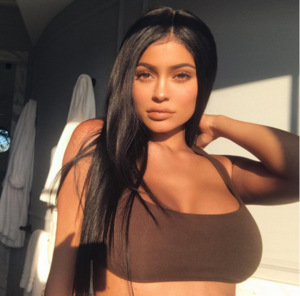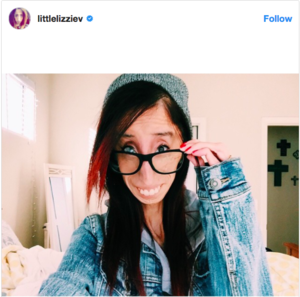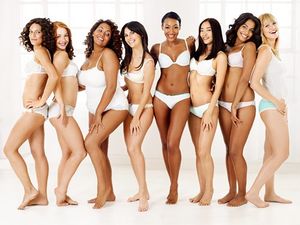The Portrayal of Women Through Media
Social media is widely used as a platform in modern society with over billions of users daily. In general, media has a strong influence on its audience and standard representations are directed through the many apps in the realm of social media.
Platform of Information
Information is linked and shared through this platform whether it acts as a benefit to some, or displays signs of misrepresentation to others, knowledge is traveled all around to users. Social media has the ability to eliminate any barriers between individuals and enable the creation of new connections and relationships. How does this affect the aspect of feminism? Nowadays, the media acts as a platform for women to express their concerns which enables them the ability to voice out their opinion. Aarons Mele (2012) claims that "social media is the next wave of women's liberation." The use of social media allow the enhancement of women's participation in economic as well as political life, allowing them to promote social change, and ultimately allowing them to increase their self expression.
Culture
A new wave of feminism is here with the existence of social media, the most powerful voice available. Social media has changed the role of women indefinitely and allowed for empowerment to come forth, but at the same time it may bring stress to others. “Stereotypes of women within the media industry still very much exists” (Gutierrez). To further analyze how social media effects feminism in a sense, we must first come to understand the different cultures behind it. Culture is ordinary and a familiar part of every day life. “Culture in today’s societies thus constitutes a set of discourses, stories, images, spectacles, and varying cultural forms and practices that generate meaning” (Kellner and Durham, 14). Furthermore, these social behaviours and norms are set towards society as a guidance for people to follow. There are many cases where certain standards are directed towards the feminist population, effecting women’s empowerment, their sense of self-esteem, linking it with anxiety and depression. So how does social media really effect the population in general? The culture in context is crucial when it comes to the discussion on whether social media poses a positive or negative effect toward feminism.
Distortion of Image
For decades now, our society has been debating whether or not there are positive or negative correlations with the images we view on media and the way we perceive ourselves. When it comes to beauty and fitness, there are certain standards that are set. According to Glamour magazine, a study showed that “four out of every five negative beauty tweets from women were about themselves.”
Throughout time there are many female figures that blew up in popularity and are instantly perceived as influencers on the social media platform. Because of all the celebrities and models that display their bodies in such a way, in certain angles, through social media, the rest of society are to believe certain standards help define beauty. From such influences, women feel that the beauty standards set by social media are realistic. However, “almost three quarters of women believe social media comments critiquing women’s beauty are destructive to their self-esteem.” So what ultimately shapes our perception of beauty?
"Role" Models
Kylie Jenner and the Kardashians have become a huge impact on social media through their shows "Keeping up with the Kardashians," and through platforms like Snapchat and Instagram. Some say that these celebrities are known to have plastic surgery performed on them in order to be more appealing to the public. Females nowadays especially in the younger generation look up to these influencers and direct their attention to the surgeries performed to enhance "beauty", and relate the procedures to a social norm. Aside from them, there are many fitness bloggers, Instagram models, who affect society by displaying a central message that real beauty is determined by them, thus setting a standard for other women to compare and look up to.
Although society is effected and influenced by the idea of "selfie," Instagram, fitness models, and etc, there are influencers who focus on real beauty, whether the shape or size, age or colour. For example, Lizzie Velasquez, a very influential content creator, who spreads positivity through her own youtube channel. Because she suffers from a rare genetic disorder that prevents her from gaining any weight, 26-year-old Lizzie Velásquez has never weighed more than 64 pounds. When she was in high school, Lizzie found a YouTube video of herself titled “The Ugliest Woman in the World.” Rather than shy away from the platform, she launched her own YouTube channel, where she posts videos about beauty, body positivity, and kindness (New York Times).
Eliminating the Social Norm
Dove Commercials
Media representations come in many forms, from films to television shows, to commercials and even media postings of pictures on certain platforms, the display of information comes out to be very influential. “Feminists could argue that the media influence is even greater now than before, with 24/7 news channels, popular media such as film, television, newspapers, and magazines, continue to frame women within a narrative repertoire of types that bear little or no relation as to how real women live their real lives” (Byerly and Ross, 18). One example of a company that issued a very controversial commercial to protect the image of a women’s body, would be Dove.
In 2004, Dove’s marketing strategy was reassessed to create a unified global image and to generate brand loyalty. Results were that less than 2% of women feel beautiful (Etcoff, Orbach, Scott, & D’Agostino, 2004), 75% want representations to reflect diversity while 76% want media to portray beauty as more than just physical characteristics. This was known as the “Campaign for Real Beauty.” “The main message of the Dove campaign was that women’s unique differences should be celebrated, rather than ignored, and that physical appearance should be transformed from a source of anxiety to a source of confidence” (Celebre and Denton).
Other Links
Gender differences in social network service use
Exploitation of women in mass media
References
1) Aarons Mele, Morra, 2012, ‘Social Media Are Here to Stay, and That’s Good for Women’, The New York Times, viewed July 1 2014.
2) Byerly, Carolyn M., and Karen Ross. Women and Media: a Critical Introduction. Blackwell, 2006.
3) Celebre, Angela, and Ashley Denton. “Magazine Issue 2 2014 / Issue 19.” The Inquisitive Mind, 5 Feb. 2004, www.in-mind.org/article/the-good-the-bad-and-the-ugly-of-the-dove-campaign-for-real-beauty.
4) Durham, Meenakshi Gigi, and Douglas Kellner. Media and Cultural Studies: Keyworks. Wiley-Blackwell, 2012.
5) Ectoff, Nancy, et al. “THE REAL TRUTH ABOUT BEAUTY: A GLOBAL REPORT’ .” Findings of the Global Study on Women, Beauty and Well-Being .
6) Jessica McLean, Sophia Maalsen, ‘We Don’t want it to be like that for her again’: gendered leadership and online feminism in Australian politics and planning, Australian Planner, 2017, 54, 1, 24
7) Katz, Bright. “New Study Shows Impact of Social Media on Beauty Standards.” Women in the World, World Media, 15 Jan. 2015, nytlive.nytimes.com/womenintheworld/2015/04/03/new-study-shows-impact-of-social-media-on-beauty-standards/Destroying+the+Joint+and+Dying+of+Shame?+A+Geography+of+Revitalised+Feminism+in+Social+Media+and+Beyond.
8) Lo, Danica. “How Does Social Media Impact Women's Body Image .” Glamour, Glamour Magazine, 12 Jan. 2016, www.glamour.com/story/social-media-self-esteem.
9) MCLEAN, J. and MAALSEN, S. (2013), Destroying the Joint and Dying of Shame? A Geography of Revitalised Feminism in Social Media and Beyond. Geographical Research, 51: 243–256. doi:10.1111/1745-5871.12023
10) Mcleary, Caitlin. “A Not-So-Beautiful Campaign.” University of Tennessee, Tennessee Research and Creative Exchane, 15 Nov. 2017, trace.tennessee.edu/cgi/viewcontent.cgi?article=2724&context=utk_chanhonoproj.
11) Ross, Karen, and Carolyn Byerly. “Women and MEdia.” International Perspectives, Blackwell Publishing, 2004, onlinelibrary.wiley.com/store/10.1002/9780470776421.fmatter/asset/fmatter.pdf?v=1&t=jaotncnz&s=6110b4306932fb0149cd24ca0f34bbd80d229e16&systemMessage=Wiley+Online+Library+will+be+unavailable+on+2nd+Dec+2017+starting+from+0800+EST+%2F+1300+GMT+%2F+21.00+SGT+for+2.5+hours+due+to+urgent+server+maintenance.+Apologies+for+the+inconvenience.


